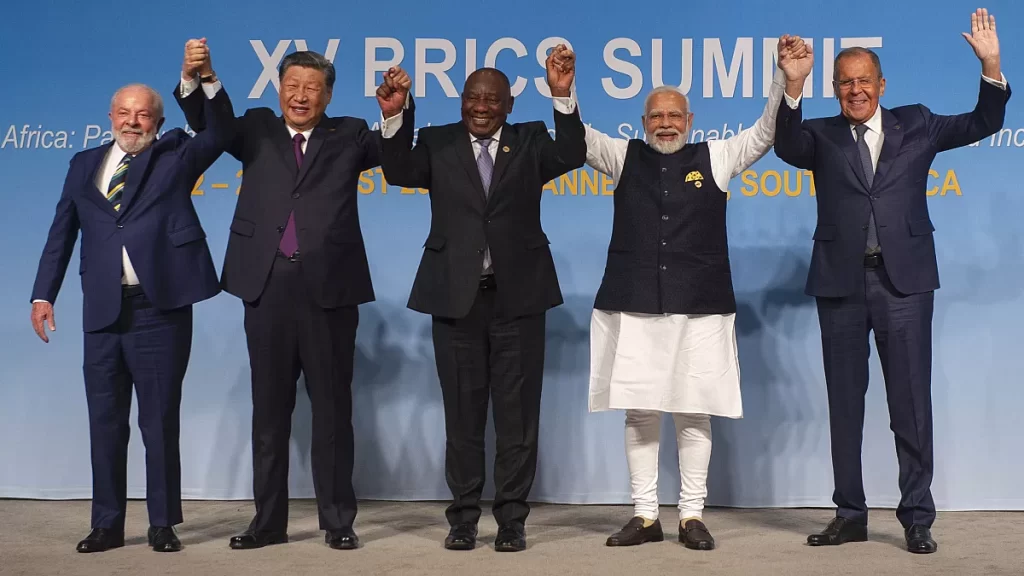Is Turkey’s BRICS Membership a Challenge to Western Dominance?
Turkey’s Potential BRICS Membership: A New Strategic Alignment?
As global power dynamics continue to evolve, the potential for new alliances and strategic partnerships is reshaping the international landscape. One of the most intriguing developments in recent years is Turkey’s interest in joining the BRICS group, composed of Brazil, Russia, India, China, and South Africa. Turkey’s potential membership in BRICS has sparked significant discussions, particularly in the context of the country’s shifting foreign policy and its quest for a multipolar world order.

What is BRICS and Why It Matters?
BRICS, originally formed in 2009, represents a coalition of emerging economies that have increasingly challenged the dominance of Western-led international institutions. The group’s primary goal is to foster economic cooperation, promote trade among its members, and create an alternative financial system less reliant on Western powers, particularly the U.S. dollar. As BRICS countries account for a significant portion of global GDP and population, their influence on world affairs continues to grow.
For Turkey, joining BRICS could symbolize a strategic pivot away from the traditional Western alliances such as NATO and the European Union. While Turkey remains a key member of these organizations, its growing frustration with Western policies, sanctions, and criticisms, particularly concerning its internal politics and regional activities, has led to the exploration of new alliances.

Turkey’s Interest in BRICS: A Strategic Shift
Turkey’s interest in joining BRICS is not a sudden development but rather a reflection of its evolving foreign policy. Over the last decade, Turkey has increasingly sought to diversify its diplomatic and economic relationships. President Recep Tayyip Erdoğan’s government has consistently emphasized the importance of creating a “multipolar world” where emerging economies and regional powers play a greater role in global governance.
For Turkey, BRICS presents an opportunity to:
- Strengthen its economic ties with major emerging markets like China and India.
- Explore alternative financial systems that reduce dependency on Western financial institutions.
- Gain greater geopolitical leverage by aligning with powers that challenge Western hegemony.
Moreover, Turkey’s growing defense industry and energy partnerships with Russia are key elements in its BRICS strategy. By aligning more closely with Russia, especially in energy projects like the TurkStream pipeline, Turkey aims to position itself as a crucial energy hub between Europe and Asia.

The Kazan Meeting: A Strategic Move by Erdogan
President Erdoğan’s recent visit to Kazan for the BRICS-related discussions underscores Turkey’s commitment to exploring this new strategic alignment. During his visit, Erdoğan met with Russian President Vladimir Putin to discuss energy, trade, and defense cooperation, which further solidifies the growing partnership between the two nations.
This meeting holds significant importance as it symbolizes Turkey’s desire to strengthen its ties with BRICS members, particularly Russia, at a time when global tensions are high. The discussions in Kazan were not just about economic cooperation; they also touched upon regional security issues and Turkey’s growing role in global energy transit routes.

TUSAŞ Explosion: A Coincidental Event or a Political Message?
Amidst Erdoğan’s visit to Kazan, an explosion occurred at the Turkish Aerospace Industries (TUSAŞ) facility in Ankara, raising questions about the timing and potential implications of this event. While no clear link has been established between the explosion and Turkey’s BRICS discussions, the incident has fueled speculation that it could be a warning or a message aimed at Turkey’s increasing independence in defense and foreign policy.
Turkey’s defense industry, which has seen significant growth in recent years, has become a critical component of its national security and regional influence. The TUSAŞ explosion, whether coincidental or not, highlights the vulnerabilities Turkey faces as it seeks to assert itself on the global stage.

The Future of Turkey and BRICS: Opportunities and Challenges
Turkey’s potential BRICS membership offers both opportunities and challenges. On the one hand, joining BRICS would provide Turkey with access to new markets, alternative financial systems, and closer ties with emerging global powers. This could reduce Turkey’s economic dependence on Western institutions and create a more balanced approach to its foreign policy.
On the other hand, aligning with BRICS could complicate Turkey’s relations with its traditional Western allies. As Turkey strengthens its ties with Russia and China, questions may arise about its long-term commitment to NATO and its position within the Western-led international order.
Ultimately, Turkey’s BRICS aspirations are a reflection of its broader strategy to navigate an increasingly complex and multipolar world. As global power shifts continue, Turkey’s role in this evolving landscape will be shaped by its ability to balance its traditional alliances with new opportunities in the East.













